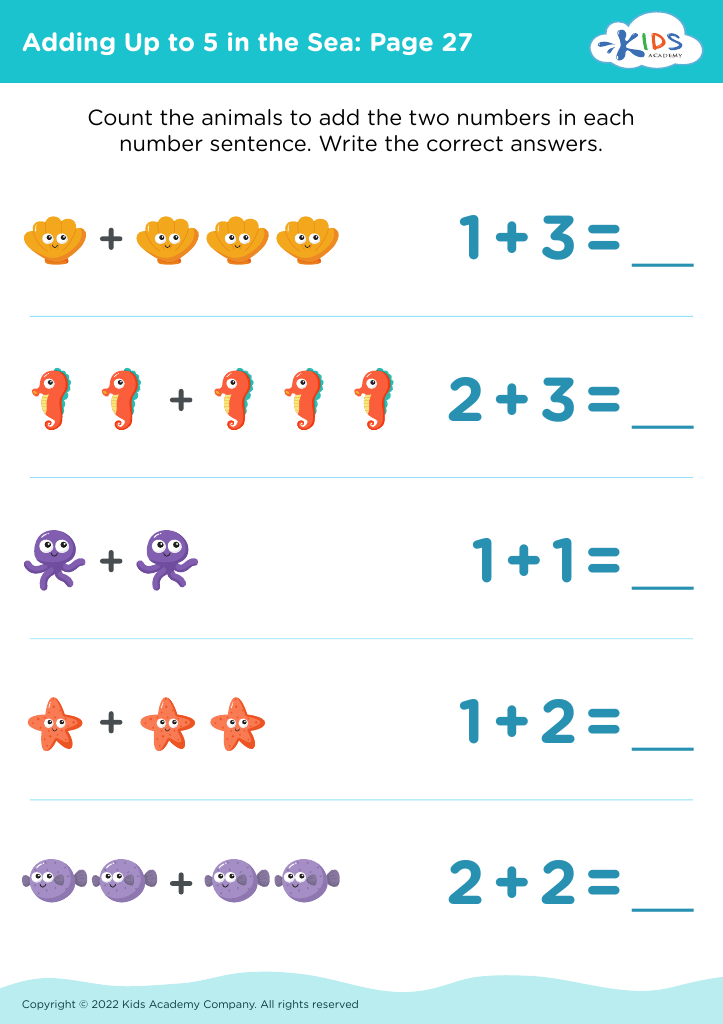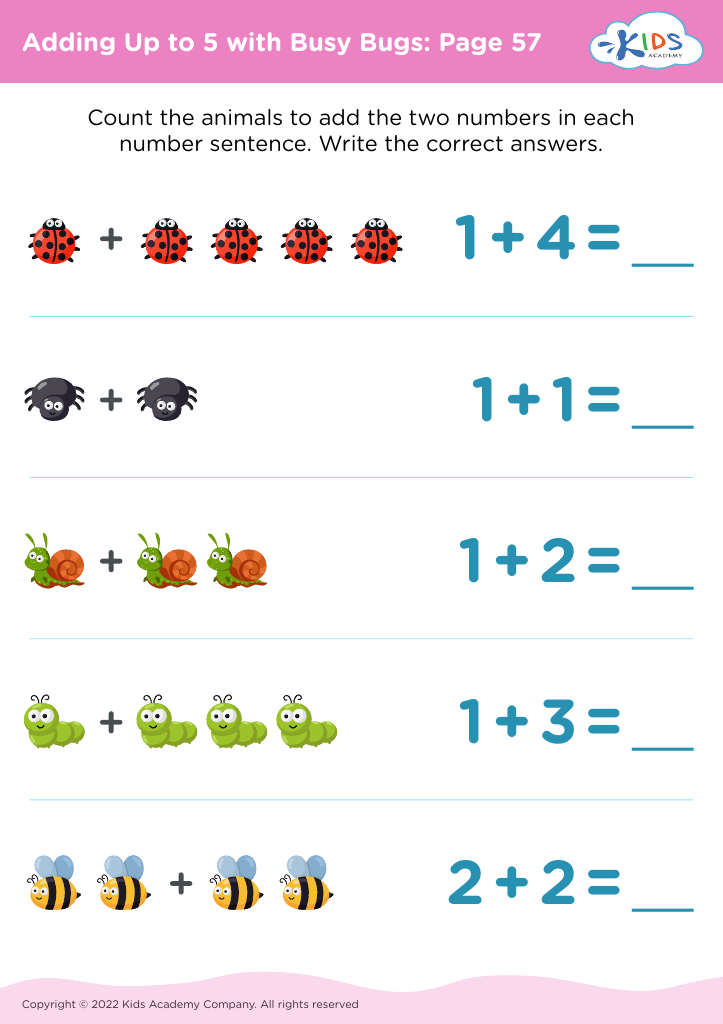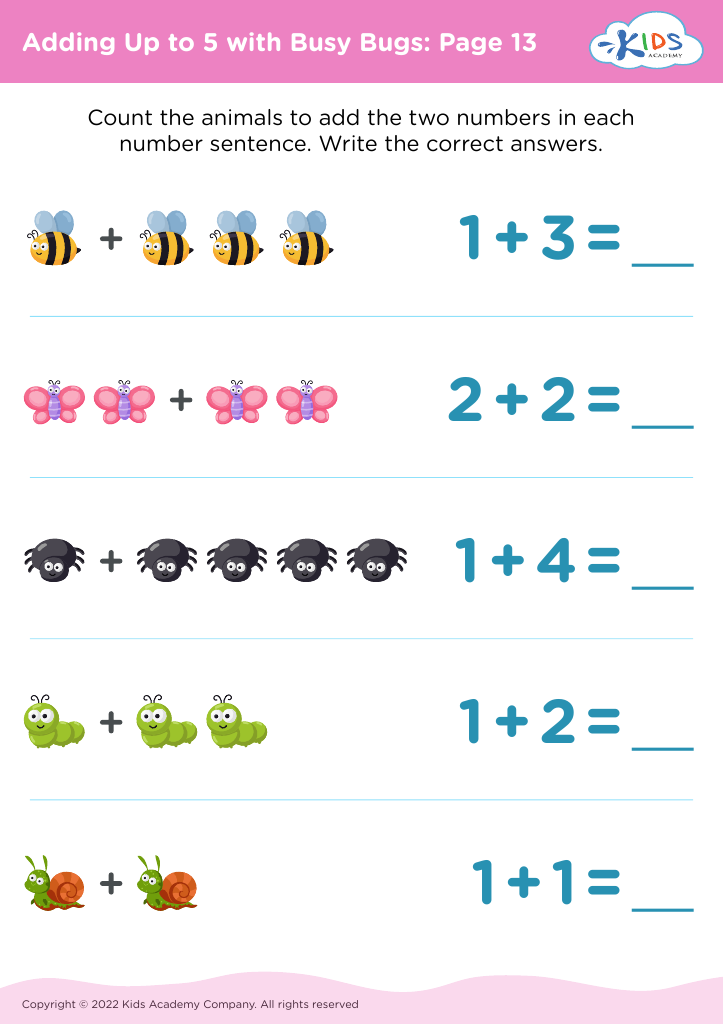Understanding numbers Addition Worksheets for Ages 3-9
4 filtered results
-
From - To
Discover our engaging "Understanding Numbers Addition Worksheets for Ages 3-9" designed to make learning math fun and interactive. Tailored for young learners, these worksheets help children grasp fundamental addition concepts through colorful visuals, playful characters, and thoughtfully crafted problems. Ideal for preschool to early elementary students, our worksheets foster critical thinking and number sense, ensuring solid foundations in math. Perfect for classroom activities or at-home practice, each worksheet encourages confidence and excitement in learning. Enhance your child's math journey with our expertly designed addition worksheets, and watch their skills bloom. Explore now and make numbers their new favorite subject!
Understanding numbers and basic addition are foundational skills that significantly impact a child's academic growth and everyday life. For ages 3-9, these early math skills are crucial as they lay the groundwork for more complex mathematical concepts, problem-solving abilities, and logical thinking.
At a young age, learning numbers and basic addition helps children to develop cognitive skills that are essential for understanding the world around them. Recognizing numbers and their values enables children to count objects, understand quantities, and make comparisons, which are vital for daily activities like counting toys, snacks, or steps.
For parents and teachers, fostering a solid understanding of numbers and addition also encourages a positive attitude toward learning math. Early success in these subjects builds confidence, reduces math anxiety, and nurtures a sense of curiosity and exploration in young learners. Engaging children in fun and interactive math activities, such as counting games or simple addition problems with real-life applications, can make learning enjoyable and meaningful.
Moreover, strong numerical skills support academic success across subjects. They improve children's ability to follow instructions, organize their thoughts, and understand patterns and sequences, all of which are useful in reading, science, and other disciplines.
In summary, a strong grasp of numbers and basic addition from an early age is invaluable because it builds critical thinking skills, fosters lifelong learning, and ensures children are better equipped to face academic challenges.
























